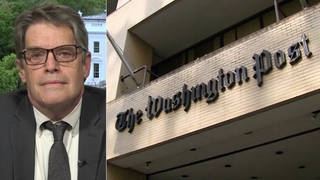
Topics
FCC Chairman Michael Powell last week refused to delay the upcoming June 2nd vote on media ownership rules. Critics say relaxed rules will lead to more mergers, leaving a few huge companies in control of what people see, hear and read.
Democratic FCC Commissioners Michael Copps and Jonathan Adelstein had requested a delay so they can evaluate the impact of the rules and reach a possible compromise.
But Powell said he would not grant the request because it is not backed by the majority on the FCC. (Powell is the son of Secretary of State General Colin Powell.)
So now, the FCC will go ahead and vote on the rules on June 2nd.
The rules have not even been made public ? Powell also refused the dissident commissioner?s request to release the rules so the public can debate them.
Still, some things are known about the upcoming vote.
Under the expected changes, for the first time ever broadcasters will be allowed to own television stations that reach more than 35 per cent of the country; own a newspaper and broadcast outlet in the same market; and the four largest TV networks will be free to merge.
That means that a single CEO could theoretically own all of the largest media outlets in the country.
Analysts say if the revised rules are passed, the US will see a wave of media mergers and consolidation that is unprecedented in the country?s history.
Major media conglomerates such as AOL Time Warner, General Electric, Disney and Viacom, and Rupert Murdoch’s News Corp. are all lobbying for the changes.
Media activists have organized a series of public hearings on the issue, the next one is this Wednesday in Atlanta.
- Juan Gonzalez, co-host, Democracy Now! and president of the National Association of Hispanic Journalists
- Seeta Pena Gangadharan, media activist who has been working on FCC deregulation issues since the passing of the 1996 Telecommunications Act. She recently co-founded the Center for International Media Action.











Media Options